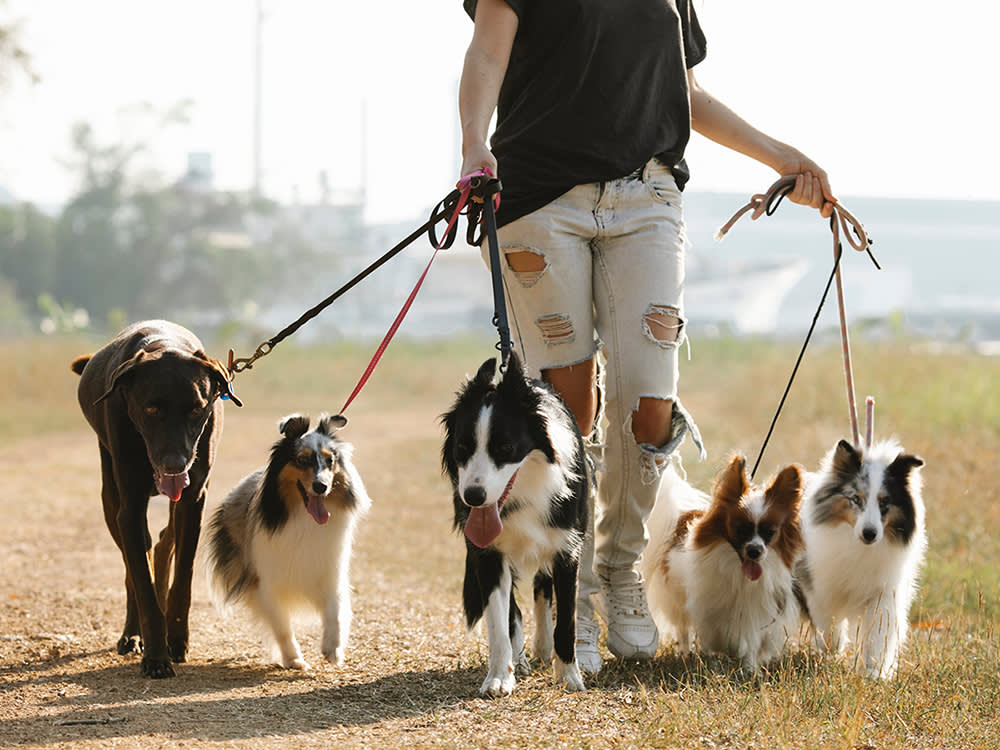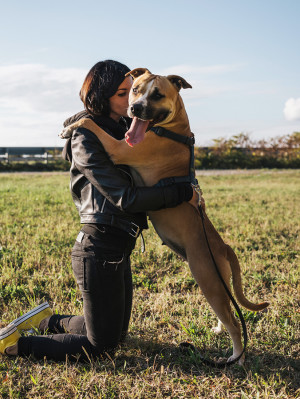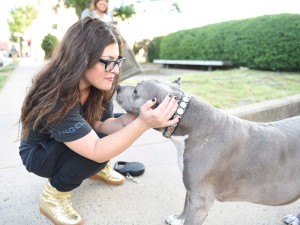Breed Does Not Equal Behavior—Here’s Why
A new study found that a dog’s breed accounts for less than 10 percent of their behavior.
We’ve all heard the stereotypes like “Yorkies are yappy,” “Pit Bulls are aggressive,” or Chihuahuas love tacosopens in new tab. While most pet parents of these breeds agree the labels are far off-base, they persist nonetheless. However, a recent study is hoping to curb some of that thinking. Last week, the science journal Science published findingsopens in new tab that upend many of these behavioral misnomers.
The community science project Darwin’s Arkopens in new tab was responsible for much of the data. Researchers examined a compilation of owner surveys, providing info on over 18,000 dogs, as well as sequencing the genomes of nearly 2,200 of them.
“Dogs are a natural system for investigating the genetics of complex traits. Millions of pet dogs live in human homes, sharing our environment, and receive sophisticated medical care,” reads the study, which was co-authored by 25 scientists. “Behavioral disorders are treated with human psychiatric drugs, achieving similar response rates, and genetic studies suggest shared etiology with some human psychiatric conditions.”
Breed really doesn’t inform behavior.
Ultimately, the team found that as little as nine percent of a dog’s behavior can be attributed to their breed. That’s roughly the same ratioopens in new tab of real tuna in a Subway “tuna” sandwich. (For those unaware of its meaty scandal or lucky enough to have avoided the chain altogether, less than one-tenth is not substantial enough to make a difference.)
How much do you spend on your pet per year?
So, what factors impact a dog’s behavior on a more tangible level? “Early socialization, exposure to novelty, training from the get-go,” says Robert Haussmann,opens in new tab certified dog trainer, founder of Dogboy NYCopens in new tab, and our Collective member. “True, clear, and fair leadership — not punishment or alpha dogging — to give a dog clear information about the world that it lives in. That all plays a big role.”
It’s important to note that the study was primarily focused on behavior in relation to a dog’s reactions to something they find new or strange — essentially, their level of aggression, a dangerous categorization that can result in misjudged breeds becoming less likely to be adopted, as evidenced by many Pit Bull-type dogs’ public image and struggle to find homes. Unfortunately, harmful ideas have a tendency to reinforce themselves and snowball.
“Pitties in a lot of cities — and I can speak for New York — make up a ton of dogs in our shelter system,” Haussmann explains. “What’s that dog’s early life and socialization? A huge percentage of these dogs could be and should be loving family members.” Of course, according to the study, Pit Bulls did prove to be one of the more human sociable pups — news to no one who’s ever met one. Haussmann also points toward irresponsible breeding as a catalyst for this lingering issue, something Darwin’s Ark notes.
Modern breeds have a history of about 160 years, whereas their evolutionary origin may date back over 10,000 years. And only in the last century and a half have they been primarily bred for appearance rather than functional roles, such as hunting, guarding, and herding. The dedication in some circles to purebred breeding has only escalated this deviation, but even then behavior is not predetermined — as 49 percent of the dogs cataloged in the survey were purebred.
Now, this might sound a bit contradictory given the last 500ish words, but the data did confirm that a dog’s heritage can play a role in their behavior. The researchers found that around 25 percent of behavioral traits are inherited and according to our expert, that tracks. “That’s how genetics, in general, work. And I think specifically in the world of dogs with their flexible genome, that’s even more inclined,” Haussmann says.
DNA testing can tell us a lot.
When you think about all the benefits of testing a dog’s DNA, we know that can be a positive resource. Certain breeds may be more susceptible to allergens or diseases and with that information, we can help prevent them or prepare the best treatment early on.
However, there is one last significant factor to ponder regarding this study. Similar to how you react when hearing your aunt boast about some politician secretly being a lizard person, we have to consider the source. Given most of the information the researchers were working off of is based on survey questions and pet owner testimonials, the data may not be entirely reliable.
With that, how should we feel about these findings? According to Haussmann, “What I’d take away from this study reinforced my own observations, which is any dog, regardless of breed, can be fearful, aggressive, anxious, overzealous, stubborn…whatever behavior you’re seeing, it could be a problem with any dog, any breed, any age, any size.” In other words, just as you wouldn’t judge all tuna based on the crap Subway labels as such — don’t judge all dogs of a breed based on the actions of one.










